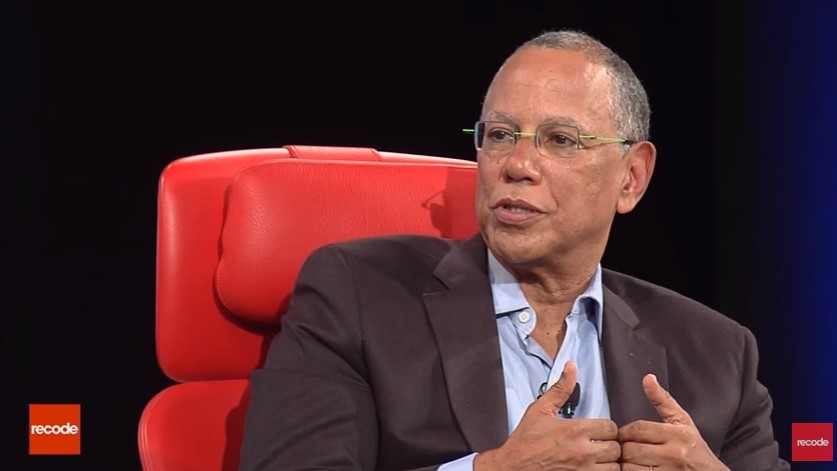 Chuck Ross at the Daily Caller harped on something New York Times executive editor Dean Baquet said Wednesday at the Recode conference in California. In discussing the Times editorial pages -- and the liberal reader anger over signing up right-leaning columnist Bret Stephens from The Wall Street Journal -- he used the royal "We" in describing the Left, until he caught himself, and "I'm not 'we,' I'm a journalist."
Chuck Ross at the Daily Caller harped on something New York Times executive editor Dean Baquet said Wednesday at the Recode conference in California. In discussing the Times editorial pages -- and the liberal reader anger over signing up right-leaning columnist Bret Stephens from The Wall Street Journal -- he used the royal "We" in describing the Left, until he caught himself, and "I'm not 'we,' I'm a journalist."
Recode's Peter Kafka brought up a New York magazine article by Rebecca Traister reporting Hillary Clinton being angry about the Stephens hire: “Why … would … you … do … that?...66 million people voted for me, plus, you know, the crazy third-party people. So there’s a lot of people who would actually appreciate stronger arguments on behalf of the most existential challenges facing our country and the world, climate change being one of them!"
Baquet insisted Stephens is not a "climate denier," but that he thinks climate activists have turned their crusade into a "religion that brooks no disagreement." Baquet liked having a "thoughtful voice" like this in the paper. Kafka shot back "One of the arguments that people have is, look, there's plenty of places to find news from 'climate skeptics,' if you want to call them that," and if the Times wanted to stand for something, they should "embrace the left side" of the spectrum. Baquet insisted the editorial pages were meant to have more than one side:
DEAN BAQUET: It was created as a forum for different voices. I don’t understand how one can actually have an intellectual discourse in this country if you cannot have the opportunity to read thoughtful people with whom you disagree. We’re at a moment in the country right now which I think, you know, the Left should do some soul searching too, right?
We don’t want to hear anything — we’ve long said this about this about the Right — but I think the Left, we don’t — I’m not ‘we,’ I’m a journalist — but the Left as a rule does not want to hear thoughtful disagreement.
This line of argument is interesting considering that the Times canceled their Public Editor position, arguably because they didn't want any "thoughtful disagreement" in house about how their journalism looks to the public.




